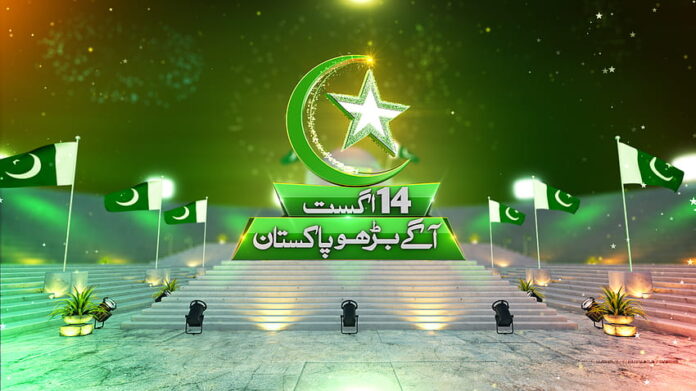The significance of 14 August 1947, the Islamic date in Pakistan. Explore the history and celebrations
Islamic Date in Pakistan, 14 August 1947
On 14 August 1947, the world witnessed the birth of a new nation, Pakistan. This date, etched in the annals of history, marks the end of British colonial rule and the beginning of Pakistan’s journey as an independent state. While 14 August is celebrated with immense fervor, it’s intriguing to explore its corresponding date in the Islamic calendar and understand the significance from a broader perspective.
Historical Context
The pre-partition era in the Indian subcontinent was marked by intense political activity and a strong push for independence from British rule. The demand for a separate Muslim state became louder with each passing year, culminating in the creation of Pakistan. The events leading to partition were complex and fraught with challenges, but the dream of an independent Pakistan was finally realized on 14 August 1947.
The Islamic Calendar
The Islamic calendar, also known as the Hijri calendar, is a lunar calendar consisting of 12 months in a year of 354 or 355 days. Unlike the Gregorian calendar, which is solar-based, the Islamic calendar is based on the phases of the moon. This results in the Islamic year being shorter than the Gregorian year by about 10 to 12 days.
14 August 1947 in the Islamic Calendar
To convert 14 August 1947 to the Islamic calendar, one must consider the lunar phases and calculations specific to the Hijri system. The corresponding date in the Islamic calendar is 27 Ramadan 1366 AH. Ramadan, the ninth month of the Islamic calendar, is a holy month of fasting, prayer, and reflection. This alignment with a sacred period adds a profound layer of significance to Pakistan’s independence.
Also Read: How to Get Easypaisa Loan
Founding of Pakistan
The declaration of independence on 14 August 1947 was a monumental event. Key figures like Muhammad Ali Jinnah, the leader of the All-India Muslim League, played a pivotal role in the creation of Pakistan. The vision was to establish a separate homeland for Muslims, where they could practice their religion freely and live according to Islamic principles.
Celebrations of Independence
Independence Day in Pakistan is celebrated with great enthusiasm. Traditions include flag hoisting ceremonies, parades, cultural events, and fireworks. Over the years, these celebrations have evolved, but the essence remains the same – a tribute to the sacrifices made for freedom and a reflection on the nation’s journey.
Cultural Impact
The birth of Pakistan significantly influenced its cultural landscape. Independence Day is not just a public holiday; it is a day of national pride and unity. It serves as a reminder of the country’s rich heritage and the diverse cultures that coexist within its borders.
Islamic Values in Pakistan’s Foundation
The foundation of Pakistan was deeply rooted in Islamic values. The country’s leaders envisioned a state that upholds the principles of justice, equality, and fraternity as taught by Islam. These values were intended to guide the governance and societal norms of the newly formed nation.
Comparison with Other Islamic Countries
Unlike other Muslim-majority countries that also experienced colonial rule and subsequent independence movements, Pakistan’s journey was unique. The creation of Pakistan was driven by the desire to establish a state where Muslims could live without fear of religious persecution, a vision that was distinct from the secular nationalist movements in other regions.
Challenges Post-Independence
The early years of Pakistan were fraught with challenges. From political instability to economic struggles, the nation had to navigate a turbulent path. Social issues, such as the integration of refugees and ethnic diversity, further complicated the situation. However, the resilience of its people helped Pakistan overcome these hurdles.
Pakistan Today
Since its independence, Pakistan has undergone significant changes. It has evolved into a nation with a growing economy and a vibrant culture. While challenges remain, Pakistan continues to strive for progress and development, aiming to secure a better future for its citizens.
Role of Religion in Modern Pakistan
Islam continues to play a crucial role in Pakistan’s governance and societal values. The country’s laws and policies are often influenced by Islamic principles, and religion remains a central aspect of everyday life. This blend of faith and governance is a defining characteristic of modern Pakistan.
Educational Impact
The story of Pakistan’s independence is an essential part of the national curriculum. Schools teach students about the historical events leading to the creation of Pakistan, emphasizing the sacrifices made by the forefathers. Islamic education also plays a vital role, instilling religious values and principles in the younger generation.
Global Perspective
On the global stage, Pakistan is known for its strategic importance and its role in international affairs. Its relations with other countries, especially neighboring India, have been shaped by historical events. Pakistan continues to work towards enhancing its global image and forging strong diplomatic ties.
Conclusion
Reflecting on the journey since 1947, Pakistan has come a long way. From the struggles of its early years to its current status, the nation has demonstrated remarkable resilience. As Pakistan looks to the future, it aims to build on its strengths, overcome its challenges, and fulfill the aspirations of its founders.
FAQs
1. When is 14 August 1947 in the Islamic calendar?
- 14 August 1947 corresponds to 27 Ramadan 1366 AH in the Islamic calendar.
2. Why is 14 August significant in Pakistan?
- 14 August marks the day Pakistan gained independence from British colonial rule in 1947.
3. How does Pakistan celebrate Independence Day?
- Pakistan celebrates with flag hoisting ceremonies, parades, cultural events, and fireworks, among other traditions.
4. What were the challenges faced by Pakistan post-independence?
- Pakistan faced political instability, economic struggles, and social issues, including the integration of refugees and managing ethnic diversity.
5. How has Pakistan evolved since 1947?
- Pakistan has grown economically and culturally, developing into a nation with a vibrant society and ongoing efforts for progress and development.







